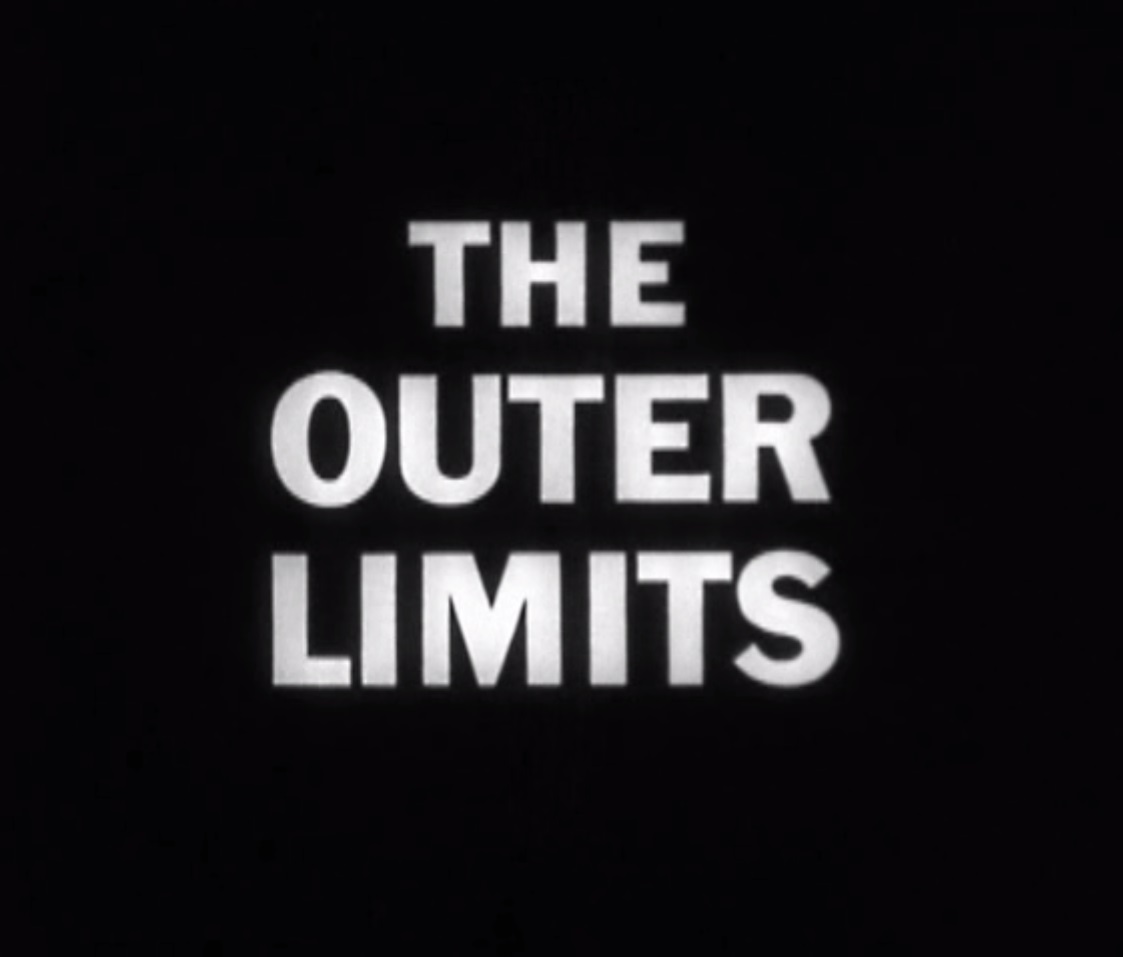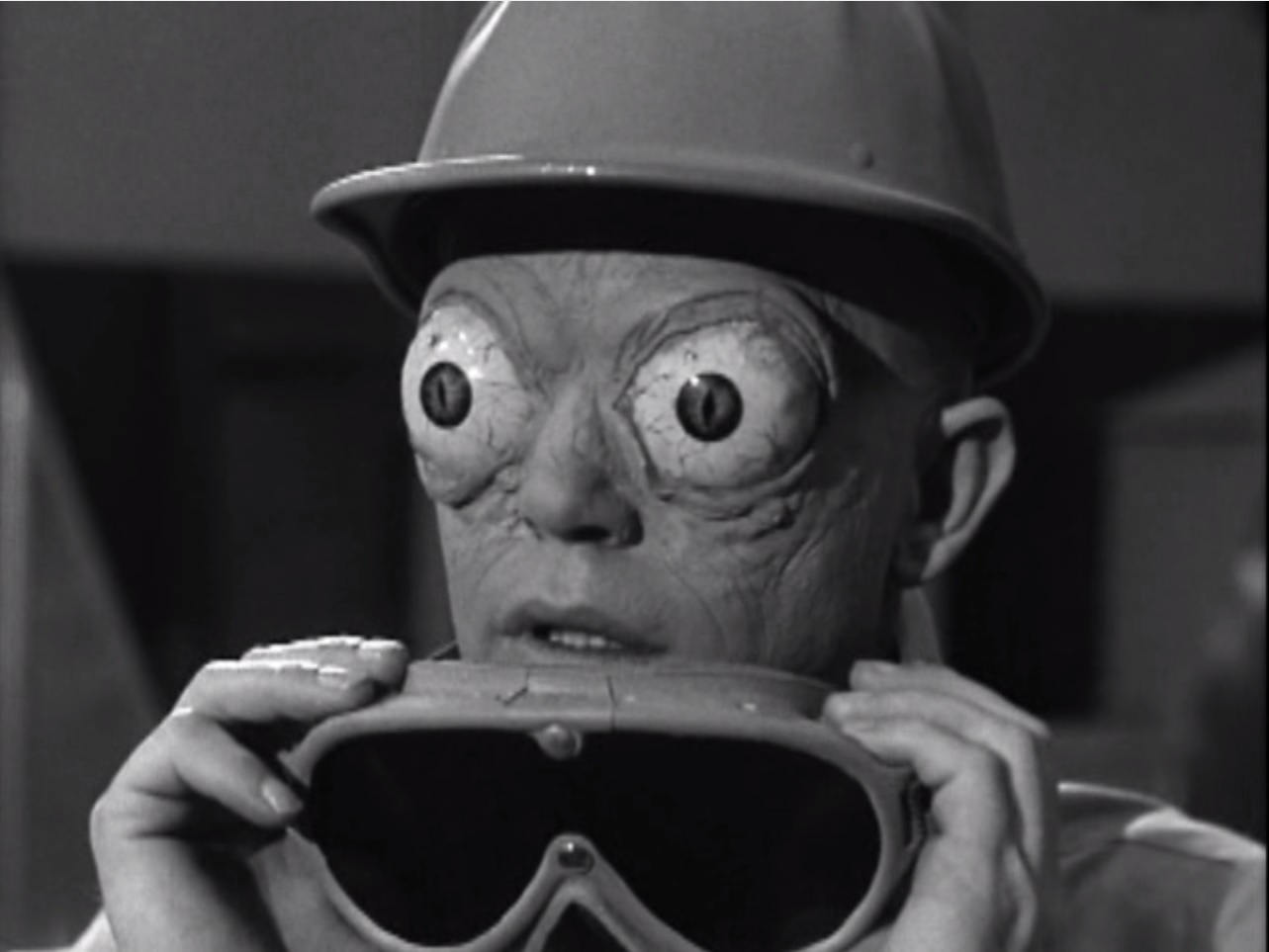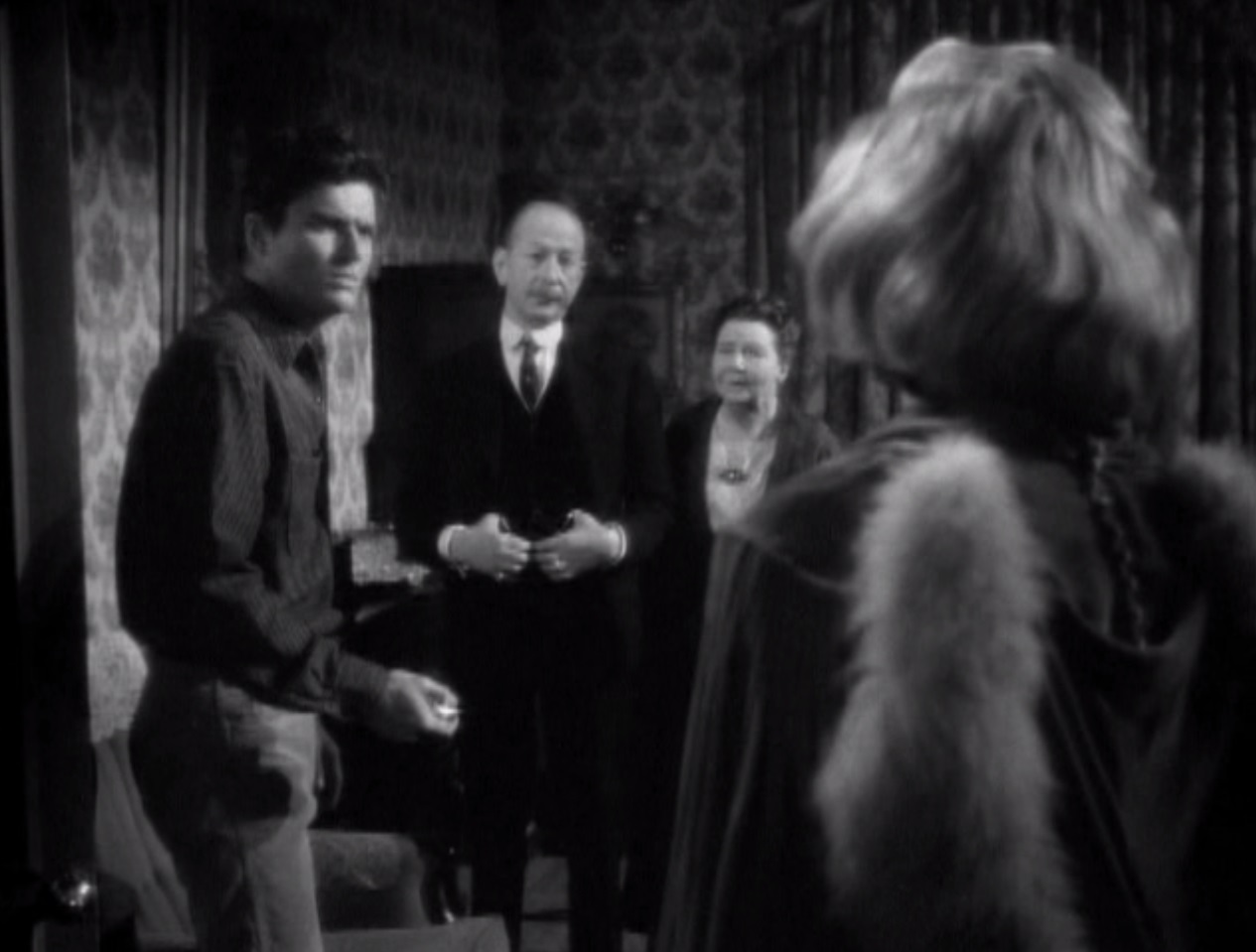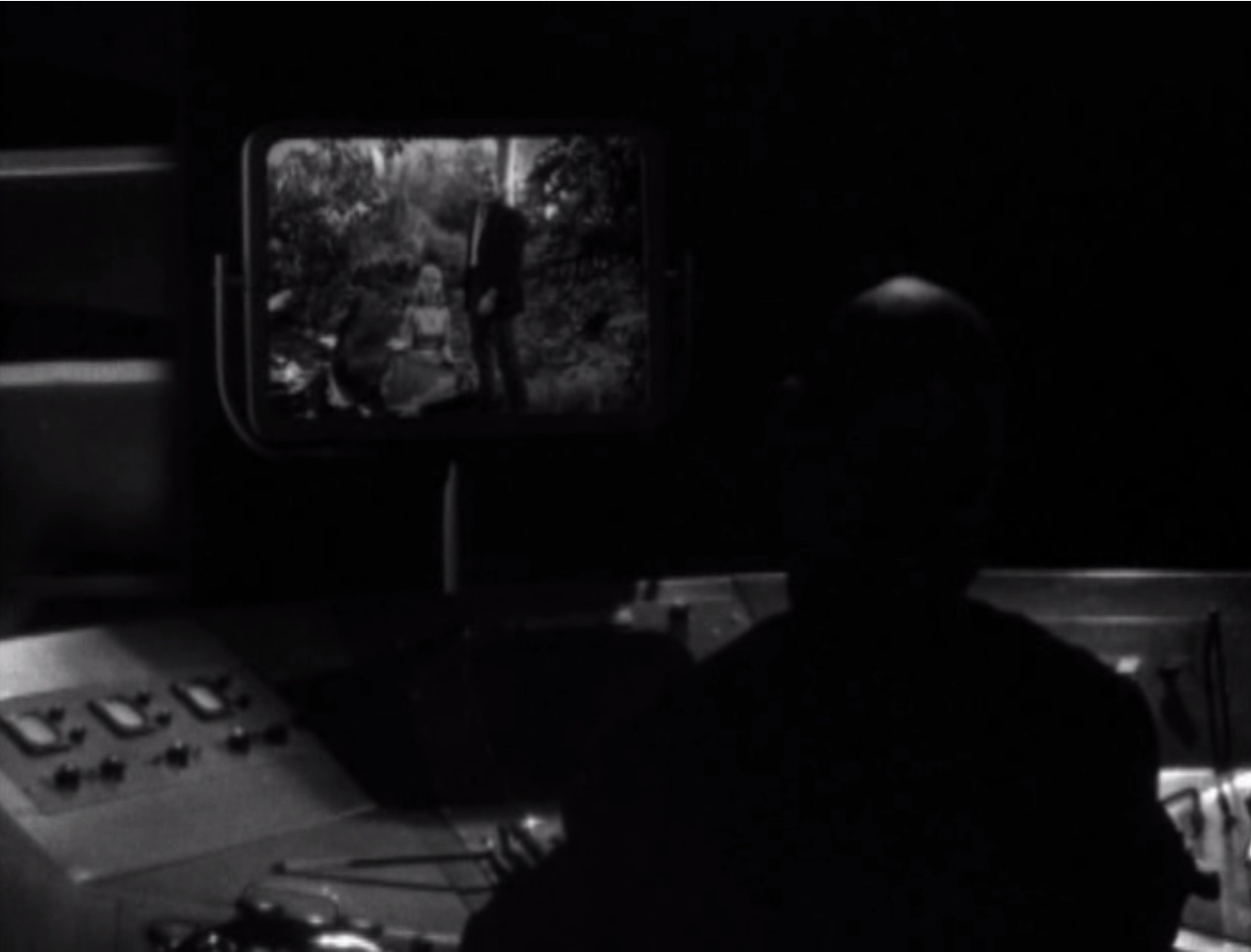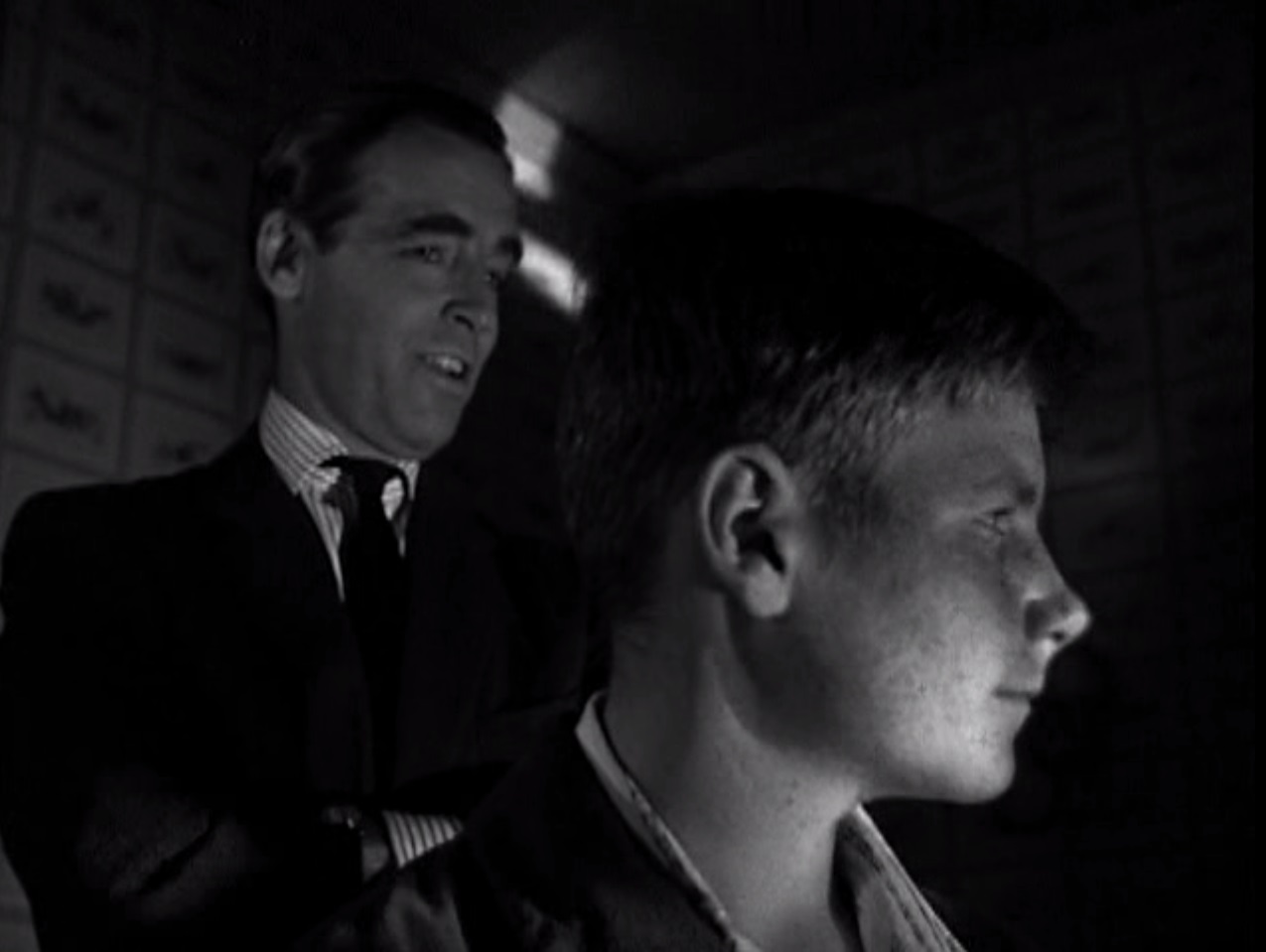
by Natalie Devitt
Back in January, it was announced that this season would be The Twilight Zone’s last. In the show’s five year run, Rod Serling’s brainchild has produced more than 150 episodes and brought a new level of sophistication to science fiction and fantasy entertainment on television. Even with some decline in the program’s quality, The Twilight Zone still remains incredibly impressive as a whole — as the series comes an end, the show still manages to deliver some strong performances:
The Brain Center at Whipple’s, by Rod Serling

In The Brain Center at Whipple’s, Richard Deacon of The Dick Van Dyke Show plays factory owner Wallace Whipple, who unveils a new device: the X109B14 automatic assembly machine. If it works as expected, it will eliminate the need for nearly all of his employees, most other machines in his factory, and it also will decrease the number of days needed to complete tasks. Whipple plans to transition into an almost entirely automated factory within the next four months, because he prides himself on the belief that “at Whipples, we only take forward steps.”
Mr. Whipple’s plant manager, Mr. Hanley (M Squad alumnus Paul Newlan), expresses concern about displacing workers in a “heartless manipulation of men and metals”, but Whipple remarks, “that is the price to pay for progress.” Whipple discourages his employees from taking things personally, though one man in particular, a long-time foreman named Dickerson (The Enforcer‘s Ted de Corsia), does take things very personally. Deciding to take matters into his hands, he declares that the X109B14 is "not a machine. It’s an enemy, it’s an opponent."
The Brain Center at Whipple’s is more thought-provoking than it is entertaining. Rod Serling's script revisits some of the themes he explored in his screenplay for Patterns, which aired on Kraft Television Theatre. Despite some strong performances by the actors and Whipple‘s character arc, this episode feels too much like a bunch of one-dimensional men having one-sided conversations.
In addition to the flat characterizations and even flatter dialogue, nothing seems to happen visually, that is unless you count yet another cameo made by Robby the Robot in his second appearance just this season. Further, this episode does not really rank among Richard Donner’s best work as a director on the series, but it is not his worst, either. In any case, I may look back on this entry more favorably with the passage of time, but right now I feel that two and a half stars is all I can offer to The Brain Center at Whipple’s .
Come Wander with Me, by Anthony Wilson

Come Wander with Me is the story of Floyd Burney, a singer also known as “The Rock-A-Billy-Kid.” Floyd is played by Gary Crosby of the very talented Crosby family. His character is on a mission, driving through remote regions, searching for unreleased songs. Unlike folklorist Alan Lomax, Floyd wants to purchase the rights of the songs so he can transform them into hits for himself. Floyd visits a music shop tucked away in the hills, offering to pay “top dollar” for an undiscovered folk song under the condition that the song is authentic. There, he meets Petticoat Junction’s Hank Patterson, who is returning to The Twilight Zone for his third time (see Kick the Can and Ring-a-Ding Girl) playing an old shopkeeper who proves not be very helpful, but all of that is forgotten once Floyd hears the sound of a young woman singing a haunting ballad.
As if in a trance, Floyd takes off by foot, carrying a guitar. He follows the sound of woman’s voice, through the fog, up a hill into the trees. Obsessed with owning the song he hears, he fails to notice some pretty ominous signs as he travels through the woods. He finally comes face-to-face with the young lady he heard singing, Mary Rachel, performed by newcomer Bonnie Beecher. Assuming that everything has a price, Floyd tries to buy the song, but she insists “that song is secret.” Floyd continues to pressure Mary Rachel to sell him the song, which he soon realizes has lyrics that can foretell some pretty tragic events in his future.
The episode starts off incredibly well, but ends up being too predictable, even without the main song’s lyrics. Come Wander with Me’s greatest strengths are without a doubt its cinematography and Jeff Alexander’s song written specifically for the episode. I love how as the song unfolds it becomes like a murder ballad. While the screenwriting leaves plenty to be desired, mainly that it lacked suspense and that it never really answered some questions regarding Floyd’s fate being predestined, the entry was not without some merit.
Some of the scenes in the woods are genuinely spooky. Also, with rockabilly now showing some influence on the music coming out of Britain and some of rockabilly’s promising stars, like Buddy Holly and Eddie Cochran, having died tragically, I found the episode flawed but oddly fascinating. Three stars.
The Fear, by Rod Serling

Trooper Robert Franklin, played by Peter Mark Richman (The Outer Limits episode The Borderland) visits a nearby cabin after receiving reports that its owner, Charlotte Scott, had been telling strange stories about noticing bright lights in the night sky. Appearing as Scott is British beauty Hazel Court, an actress who has performed in a number of my favorite horror films (Terence Fisher's The Curse of Frankenstein and Roger Corman’s Poe cycle).
Having suffered a nervous breakdown not too long ago, Scott convinces the officer that her comments were harmless and just an attempt to “inject something new into the dialogue.” But as Franklin is about to return to his squad car, the two of them hear loud sounds overhead and see bright lights. Both of them rush outside, trying to find the cause, even though Franklin assumes it must have been “a meteor or maybe an aircraft off its course. Those would be rational explanations.”
Franklin’s squad car begins operating without a visible driver and eventually tips over, leaving him unable to radio for help. Scott’s phone is not working, either. It is not long before they start hearing unusual noises on the roof of Scott’s cabin. Franklin heads outside to investigate, only to discovers his car has been returned in its original position. Stranger yet, his car is covered in abnormally large finger prints, presumably left when moving the car back. Franklin concludes that “if they are finger prints, we shouldn’t have any trouble finding our invader, because he must stand better than 500 feet high.”
The Fear succeeds in telling a pretty basic story about two seemingly different characters growing closer as they face an unknown adversary. The episode’s leads are not spectacular but believable. The entry does suffer a little when it reveals what we are led to believe is the being, even though some of the special effects employed in the scene are actually pretty good for a television. The final unveiling is a tad sillier than I imagined, but it does not matter much because at the end of the day, The Fear is well worth the watch, even if Sterling’s screenplay simply rehashes earlier episodes of the series. It earns three stars.
The Bewitchin’ Pool, by Earl Hamner

A mother, played by Dee Hartford (The Outer Limits episode The Invisibles ) and father announce to their son and daughter, Jeb and Sport (Mary Badham of To Kill a Mockingbird) that they are filing for divorce in The Bewitchin’ Pool. The Sharewood children are instructed to pick which parent with whom they want to live. Blaming themselves for their parents' marital problems, the kids promise to “be good” in a desperate attempt to keep the family together. But when that fails to work, the children try to escape their sadness by jumping into the family’s swimming pool. Of course this being The Twilight Zone, it is not an ordinary pool. As Rod Serling’s opening monologue points out, “this pool has a secret exit that leads to a never-neverland, a place designed for junior citizens.”
They go underwater and find themselves in a new place that seems heavily influenced by Hansel and Gretel and Huckleberry Finn. There, they meet an elderly lady named Aunt T., who takes them in and gives them the care that they so desperately desire. After the children have been missing for a while, they hear what sounds like their parents calling them, but Auntie T. tells them, “Those voices you hear calling, at first, they seem quite strong. But after a while, they fade. Then one day, you just simply can’t hear them anymore.”
The show’s finale was a bit of a mess. The teleplay is uncharacteristically weak for Earl Hamner, Jr, and that is coming from someone who has always had a soft spot for stories about children who use their imagination to escape reality. I did, however, find it interesting that the kids were given some control to change their lives. I also want to give the show some credit for trying something new with the very noticeable change of tone, and also for having the courage to not shy away from a tough topic like divorce.
The single most disappointing aspect of the entire episode was by far the bad looping used for the character Sport, who is clearly voiced by June Foray (The Rocky and Bullwinkle Show). Then there is the acting, which did not help matters because it featured some unusually bad performances by otherwise capable actors. It feels like a missed opportunity to have done something truly magical. One and a half stars.
Submitted for Your Approval

With the curtain about to fall on The Twilight Zone, I had hoped for one last great episode, but that did not happen. Nevertheless, the last month included two enjoyable episodes, another one with some intriguing ideas — and an entry that is memorable, even if it is for all the wrong reasons. The show was clearly running out of steam towards the end, continuing on a little longer than maybe it should have.
But I somehow doubt that changes how much it will be missed.

[New to the Journey? Read this for a brief introduction!]
Follow on BlueSky



![[August 5, 1964] A Bit Of A Flub (Doctor Who: The Sensorites [Part 2])](https://galacticjourney.org/wp-content/uploads/2019/08/640805jaccuse-672x372.jpg)
![[July 12th, 1964] Mind Over Matter (Doctor Who: The Sensorites [Part 1])](https://galacticjourney.org/wp-content/uploads/2019/07/640712susanmakesachoice-672x372.jpg)
![[June 26, 1964] Curtain Call (<i>Twilight Zone</i>, Season 5, Episodes 33-36)](https://galacticjourney.org/wp-content/uploads/2019/06/640624c-672x372.jpg)









![[June 14th, 1964] A Whole Lot Of Heartache(<i>Doctor Who</i>: The Aztecs)](https://galacticjourney.org/wp-content/uploads/2019/06/640614dontmesswithbarbara-672x372.jpg)
![[May 28, 1964] Down to the Wire (<i>Twilight Zone</i>, Season 5, Episodes 29-32)](https://galacticjourney.org/wp-content/uploads/2019/05/640528e-672x372.jpg)





![[May 20th, 1964] Completing The Collection(<i>Doctor Who</i>: The Keys of Marinus, parts 4 to 6)](https://galacticjourney.org/wp-content/uploads/2019/05/640520holmesasinsherlock-672x372.jpg)
![[May 12, 1964] Secrets Beyond Human Understanding (<i>The Outer Limits</i>, Season One, Episodes 29-32)](https://galacticjourney.org/wp-content/uploads/2019/05/640512a-672x372.jpg)

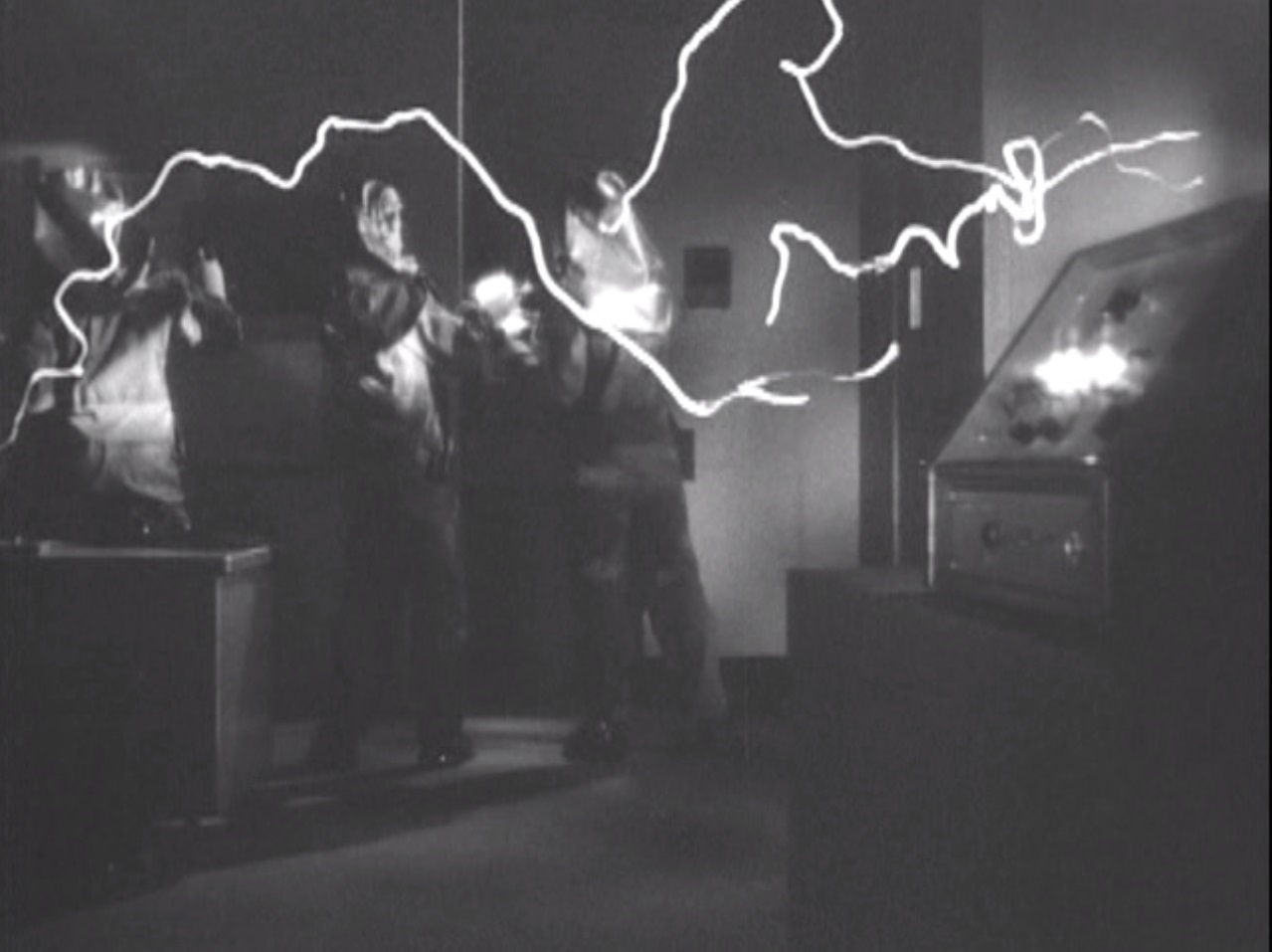
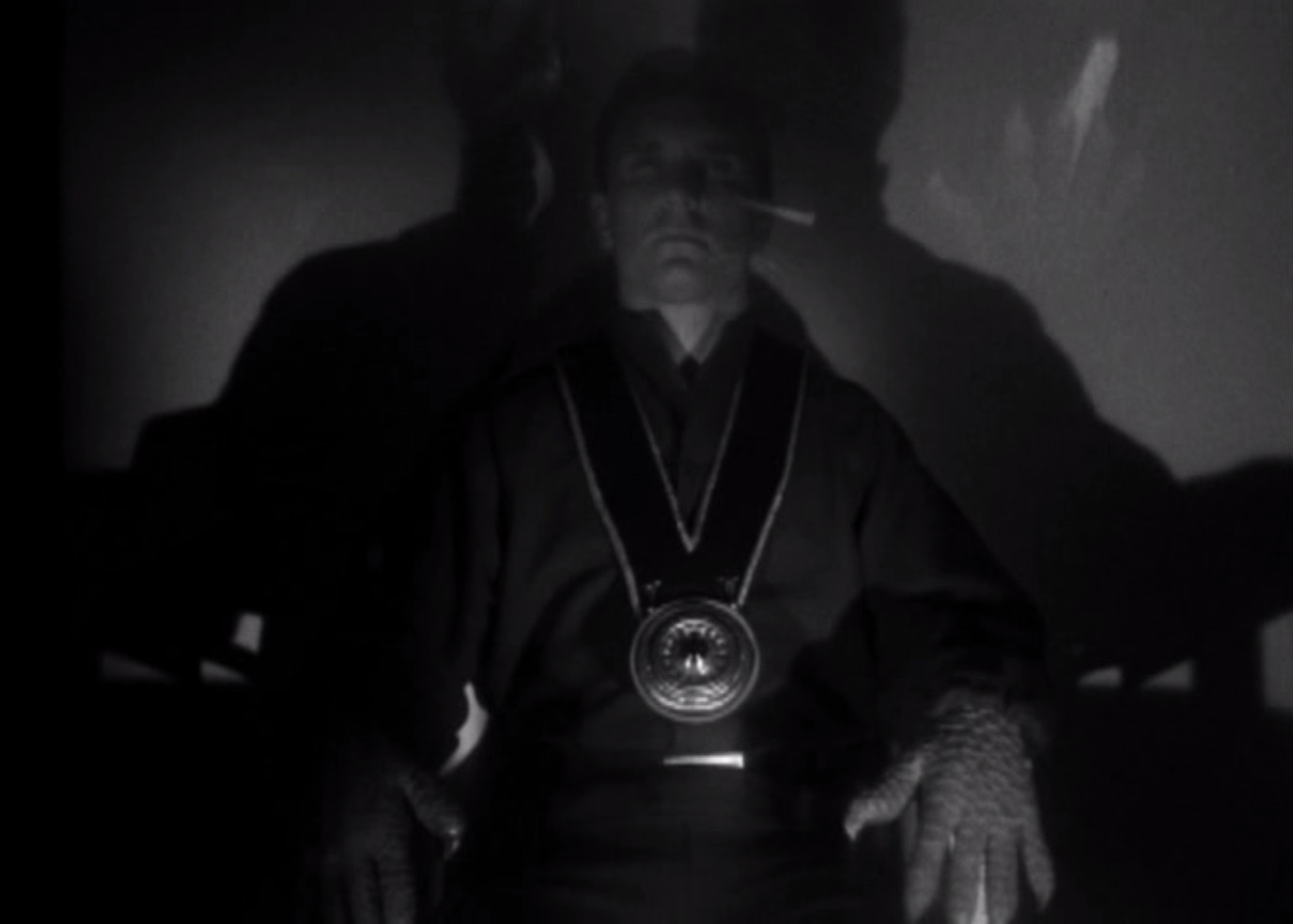
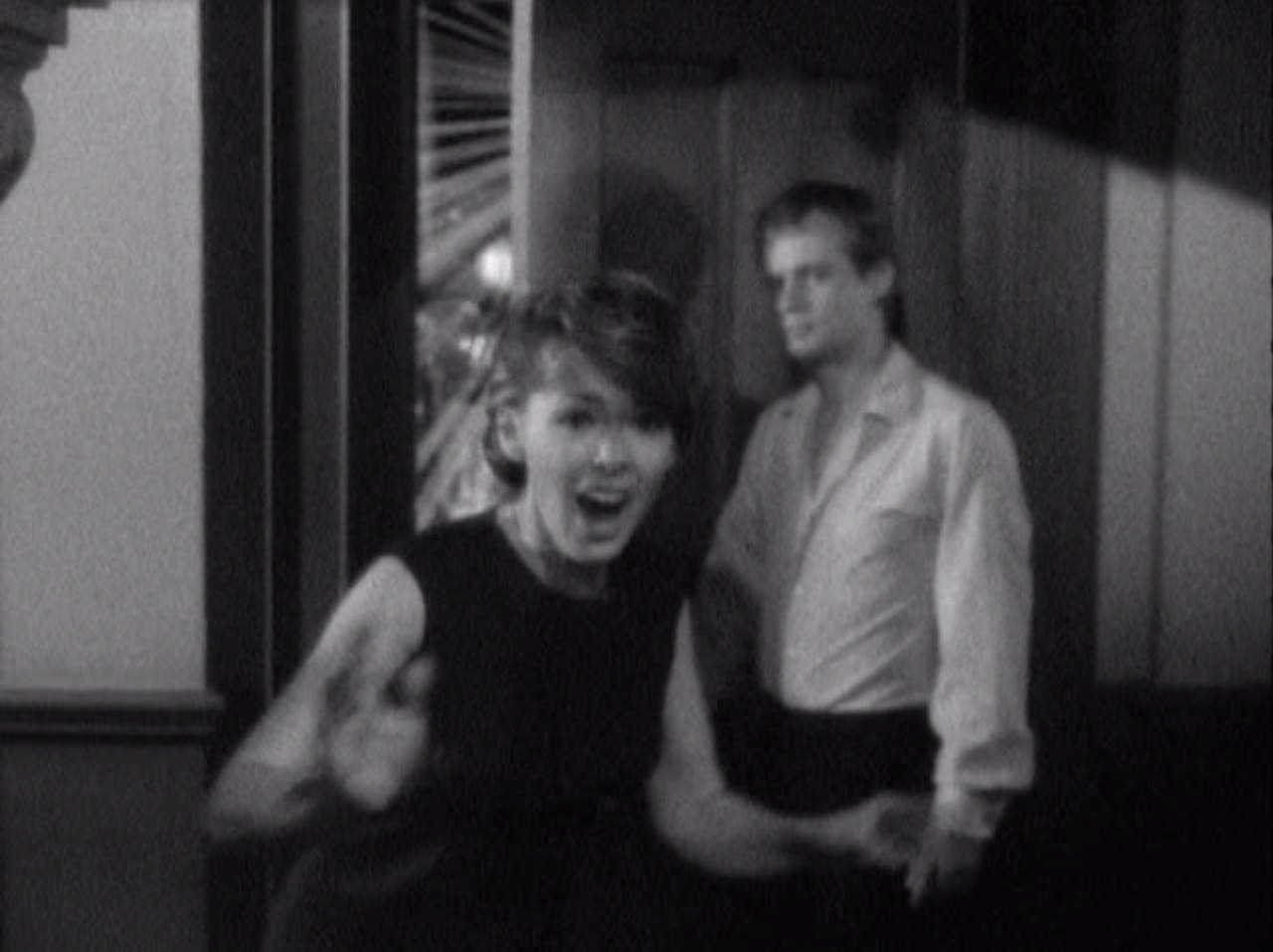
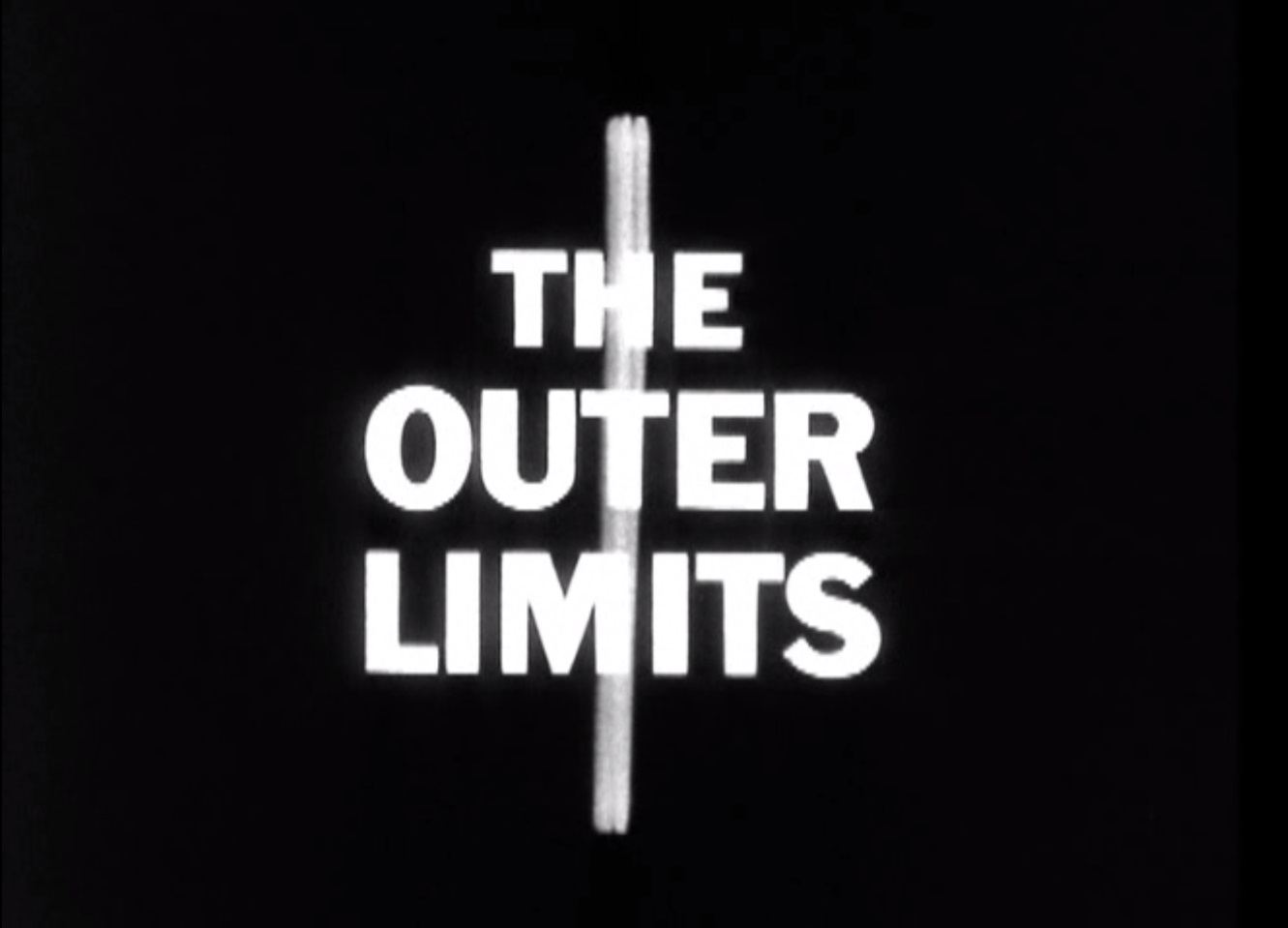
![[April 26th, 1964] The Start Of A Wild Ride (<i>Doctor Who</i>: The Keys of Marinus, parts 1 to 3)](https://galacticjourney.org/wp-content/uploads/2019/04/640426ilovebarbara-672x372.jpg)
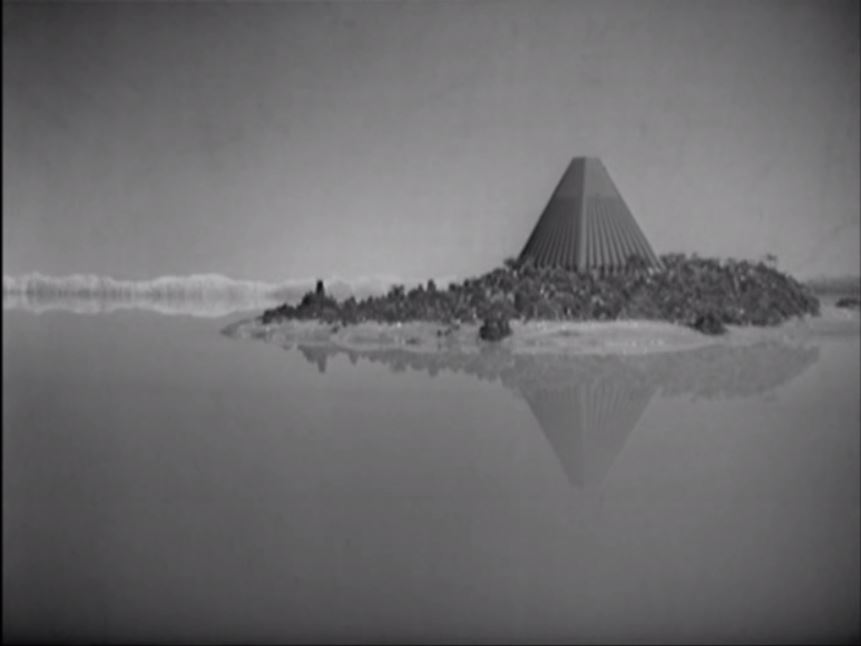
![[April 24, 1964] Some Justice to Mete Out (<i>The Twilight Zone</i>, Season 5, Episodes 25-28)](https://galacticjourney.org/wp-content/uploads/2019/04/640424a-672x372.jpg)





![[April 12, 1964] Mold of a Man (<i>The Outer Limits</i>, Season One, Episodes 25-28)](https://galacticjourney.org/wp-content/uploads/2019/04/640412b-672x372.jpg)
